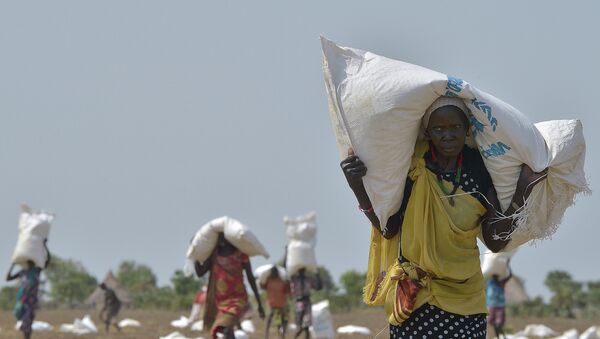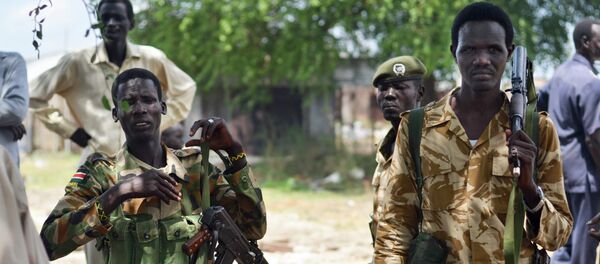The South Sudanese civil war broke out in December 2013 after a power struggle and accusations of a coup plot. Ethnic clashes and rebel group fighting with government forces that followed have continued despite numerous ceasefire agreements.
"The South Sudan Humanitarian Response Plan for 2015 is currently only 42 percent funded, leaving a gap of nearly $1 billion dollars," Under-Secretary-General for Humanitarian Affairs and Emergency Relief Coordinator Stephen O’Brien said in a statement.
Following a four-day visit to the country, O’Brien described the "horrendous atrocities" borne by civilians, "including killing, abduction and the recruitment of children into armed groups."
"Women and girls have been beaten, raped and set on fire… Many people are starving, living in swamps or in bushes, hiding in fear of their lives," he added.
O’Brien added that 4.6 million South Sudanese are "severely food insecure, with a quarter of a million children at risk from rapidly worsening nutrition."
"I call on the leadership of South Sudan to listen to their people and lay down their arms… I appeal to the international community to act now to avert an even greater humanitarian tragedy in South Sudan," he concluded.
South Sudan became an independent state on July 9, 2011, following a referendum in which over 98 percent of the voters said they were in favor of independence.
More than 50,000 people have been killed in the violence in South Sudan, according to the International Crisis Group.




